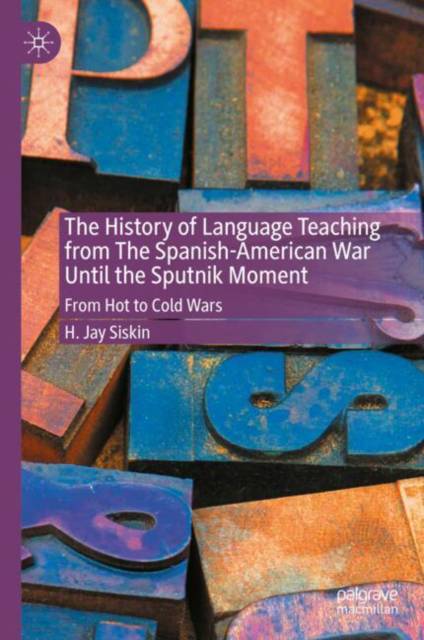
- Afhalen na 1 uur in een winkel met voorraad
- Gratis thuislevering in België vanaf € 30
- Ruim aanbod met 7 miljoen producten
- Afhalen na 1 uur in een winkel met voorraad
- Gratis thuislevering in België vanaf € 30
- Ruim aanbod met 7 miljoen producten
The History of Language Teaching from the Spanish-American War Until the Sputnik Moment
From Hot to Cold Wars
H Jay SiskinOmschrijving
This book highlights the lively exchanges that shaped foreign-language pedagogy and educational policy during the first fifty years of the twentieth century. It is critically important to revivify our past, particularly in a field where innovation is conceptualized as progress and where knowledge production is a criterion for success. Modern language teaching began its ascendancy shortly before the turn of the twentieth century. In the academy, this impulse was marked by the founding of the Modern Language Association in 1883. Modern languages were increasingly recognized as possessing the mental and humanistic values that had formerly been the sole province of Greek and Latin. The book provides an overview of the historical, political, and social concerns that preoccupied the nation from 1898 and provides a context for analyzing the developments in the teaching of foreign languages over the course of the following century.
Specificaties
Betrokkenen
- Auteur(s):
- Uitgeverij:
Inhoud
- Aantal bladzijden:
- 261
- Taal:
- Engels
Eigenschappen
- Productcode (EAN):
- 9783031750557
- Verschijningsdatum:
- 23/03/2025
- Uitvoering:
- Hardcover
- Formaat:
- Genaaid
- Afmetingen:
- 156 mm x 234 mm
- Gewicht:
- 557 g

Alleen bij Standaard Boekhandel
Beoordelingen
We publiceren alleen reviews die voldoen aan de voorwaarden voor reviews. Bekijk onze voorwaarden voor reviews.









